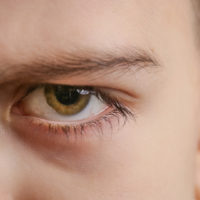Search results
-

Reconstructing child psychopathy
Reconstructing child psychopathy into grandiose-manipulative, callous emotional and daring-impulsive traits will facilitate diagnosis and treatment of conduct disorder.
Read more -

A cognitive neuroscience review of the aetiology of ADHD
A simple neurological explanation has yet to identify an aetiology and pathogenesis of the disorder. However, advancements in imaging techniques should help to give a more detailed understanding of the brain regions that are different to those without ADHD.
Read more -

The overlap between low self-esteem and anxiety/depression in CAMHS
Our systematic review aimed to establish what is known about low self-esteem and anxiety/depression in young people (<18s). We wanted to find out whether young people with clinically significant anxiety disorders and/or depression also have low self-esteem as measured on validated questionnaires. We also wanted to know whether young people with low self-esteem as measured on a validated questionnaire develop depression and anxiety symptomology later in adolescence and young adulthood.
Read more -

Persistent picky eating predicts pervasive developmental disorders in children
Picky eating — characterized by food refusal, unwillingness to try new foods or eating a limited variety of foods — affects 14-50% preschool children and is often considered by clinicians as a normal phase of child development.
Read more -

Detaching RAD from DSED: the rationale and research requirements
In order to view this content, you need to be an ACAMH member. Membership starts from just 11p a day. We hope you consider joining and being part of the advancement of child and adolescent mental health.Read moreCurrent members will need to be registered as a website user and log in, our guide to this simple process can be accessed here.
-

Affirmative care may elicit the best mental health outcomes in transgender youths
In their recent review published in the Journal of Child Psychology and Psychiatry, Jack Turban and Diane Ehrensaft highlight that high rates of anxiety, depression and suicidal intentions in children with gender concerns may be reduced by following affirmative treatment protocols.
Read more -

Self image estimations impact on mental health
Our overall estimation of “self image” is thought to be based on various parameters, such as perceptions of body image, mental function and social attitude. Now, a study by Maria Di Blasi and colleagues has investigated the extent by which these different parameters can influence psychological well-being.
Read more -

With Parents in Mind: Can shared decision making support parents at CAMHS?
Exploring shared decision making as a triad relationship between clinicians, children and parents where clinicians and service users (i.e. children and parents) share the information when faced with the task of making decisions, and where service users are supported to consider options to achieve informed preferences, may be of value.
Read more -

School-based interventions are effective, but are they efficient?
School-based interventions (SBIs) are effective for preventing and treating common medicopsychological problems and disorders in pupils, according to data from a practitioner review published in the Journal of Child Psychology and Psychiatry.
Read more -

Digital health interventions for the young: meeting expectations?
The number of digital health interventions for mental health disorders is increasing, but research from Chris Hollis and colleagues suggests that the clinical benefits and cost-effectiveness are unclear. Consistent methods of reporting and evaluation are required to extract definitive conclusions from clinical trials.
Read more
